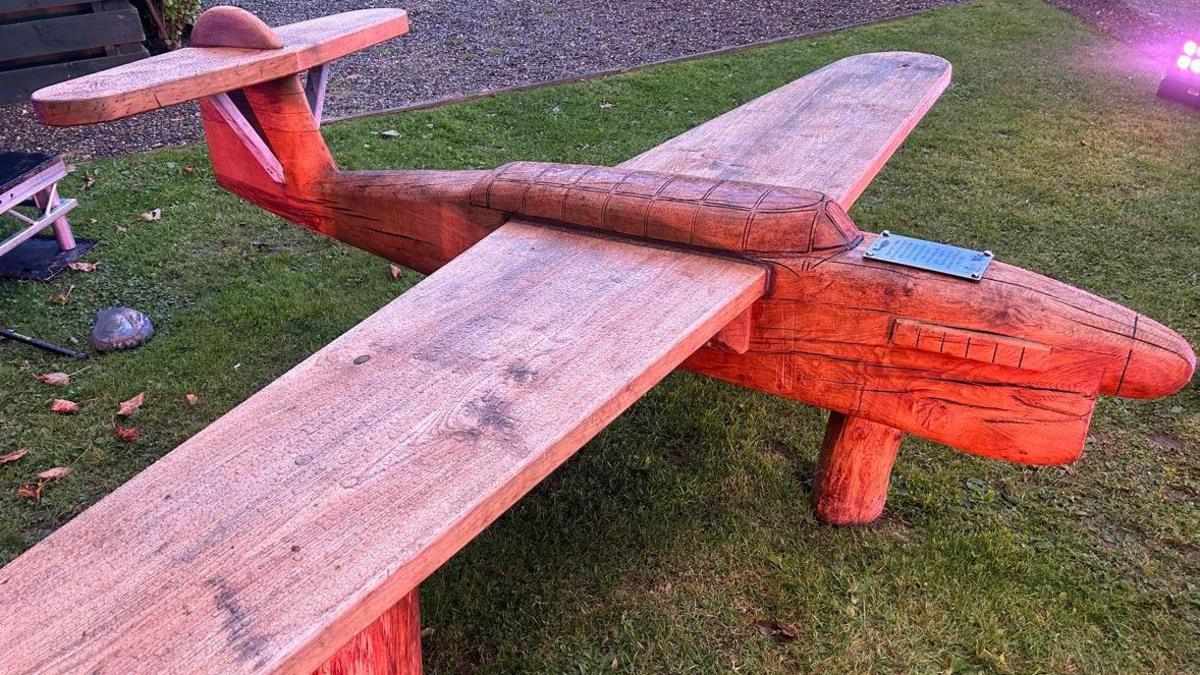Armistice Day commemorations at war memorial
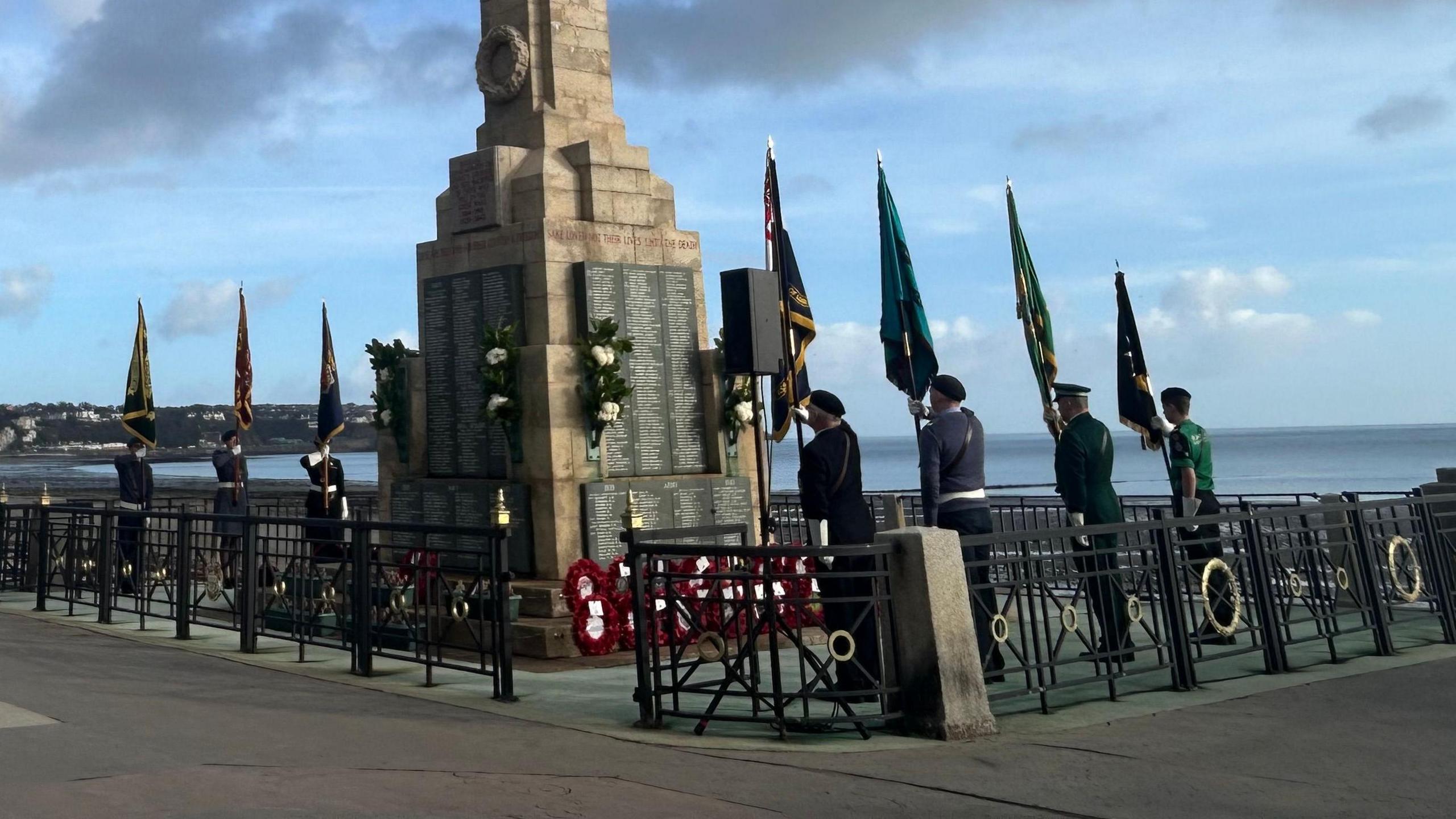
This year marks the 100th anniversary of the Douglas war memorial
- Published
The Isle of Man’s capital has marked its 100th year of Armistice Day commemorations at the Douglas Cenotaph.
A ceremony to mark the anniversary of the end of World War One was held at the war memorial on Douglas Promenade, which was first unveiled in May 1924.
A two minute silence was held followed by the laying of wreaths were also laid in proceedings that were echoed at other war memorials across the island.
Preservation of War Memorials Committee vice chair Diane Kelsey said it was “really lovely” to see younger people among those paying their respects at the ceremony.
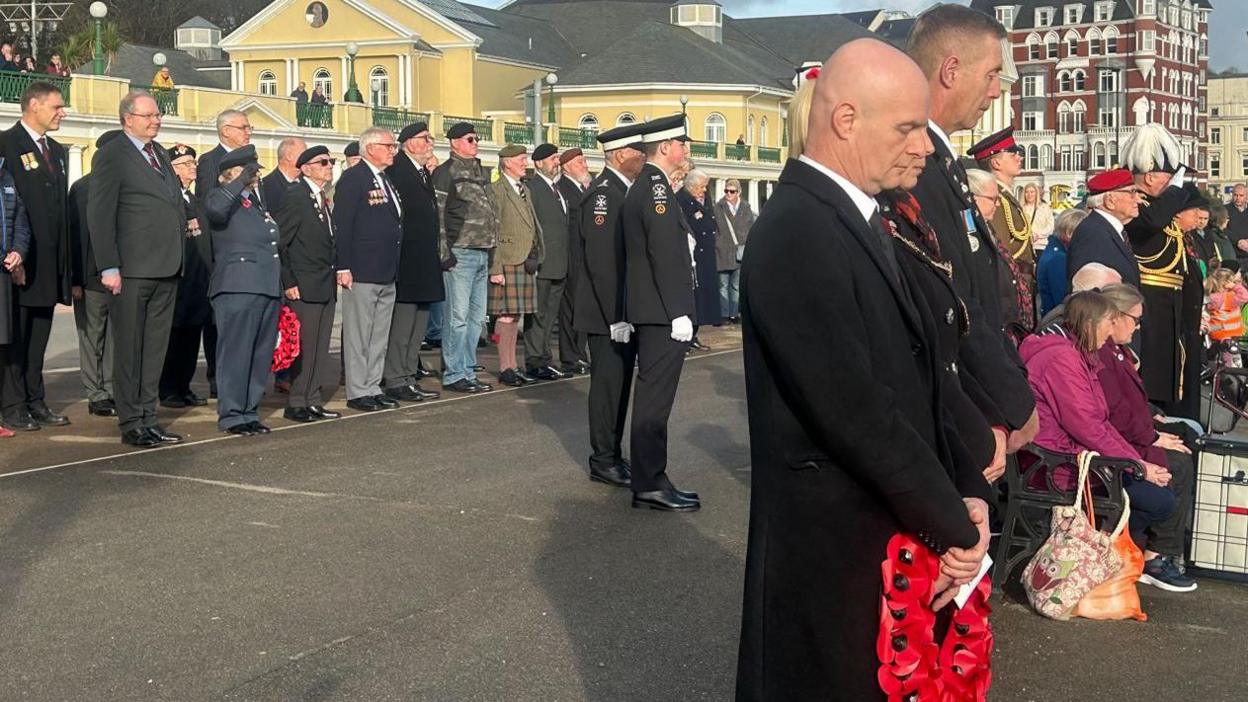
People observed the two-minute silence on Douglas Promenade
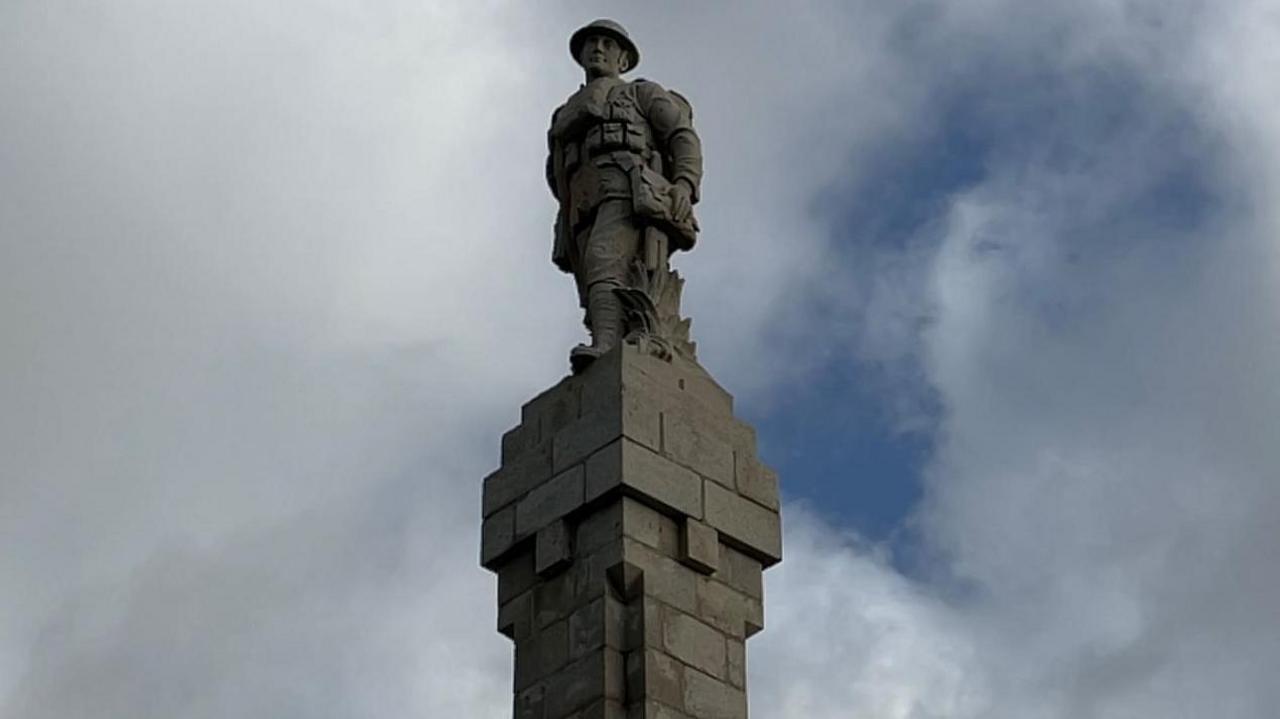
The war memorial in Douglas was first unveiled in May 1924
Mrs Kelsey, who is also vice-chairman of the Preservation of War Memorials Committee, said that body would now like to provide resources to schools to allow children to research family history or the stories of other names on memorials.
The RAF veteran said: “If you think about it, behind every name there’s a story – there’s a family, a mother, a brother, a sister, fathers, sons, and cousins.
“You cannot understand in this day and age in 2024 on the Isle of Man what people were going through a hundred years ago.
“The grief, and the sorrow and the loss of so many young lives... it’s important that we all remember those names."
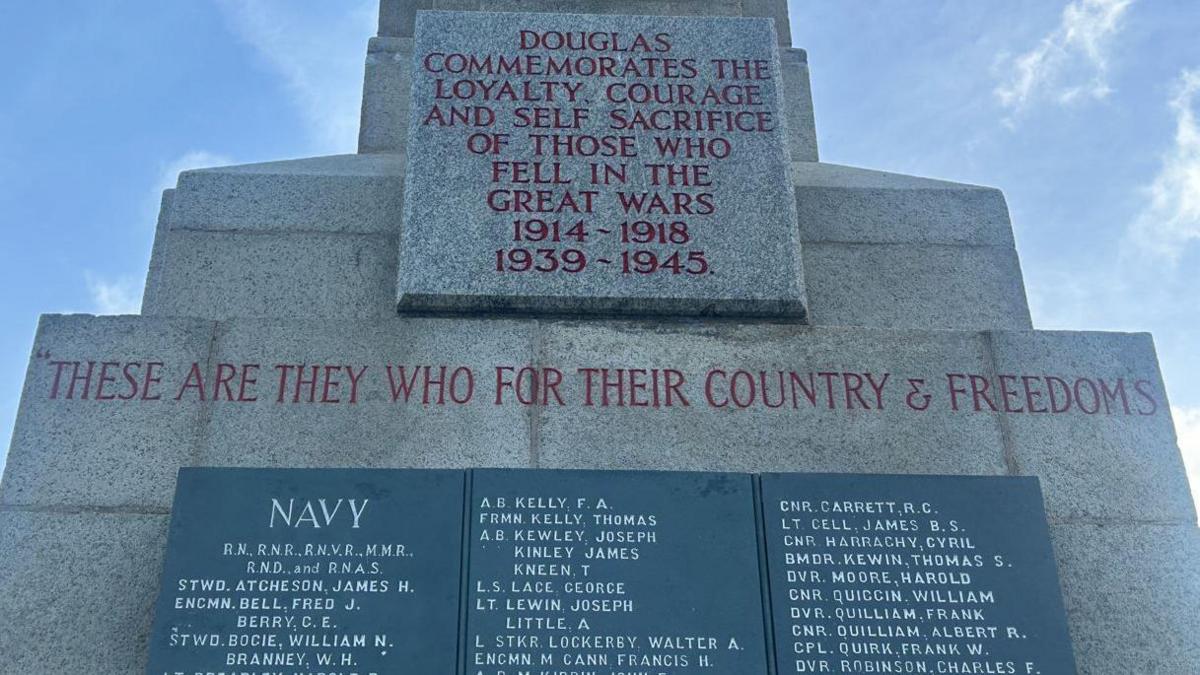
The memorial is inscribed with the names of those from Douglas killed the two world wars
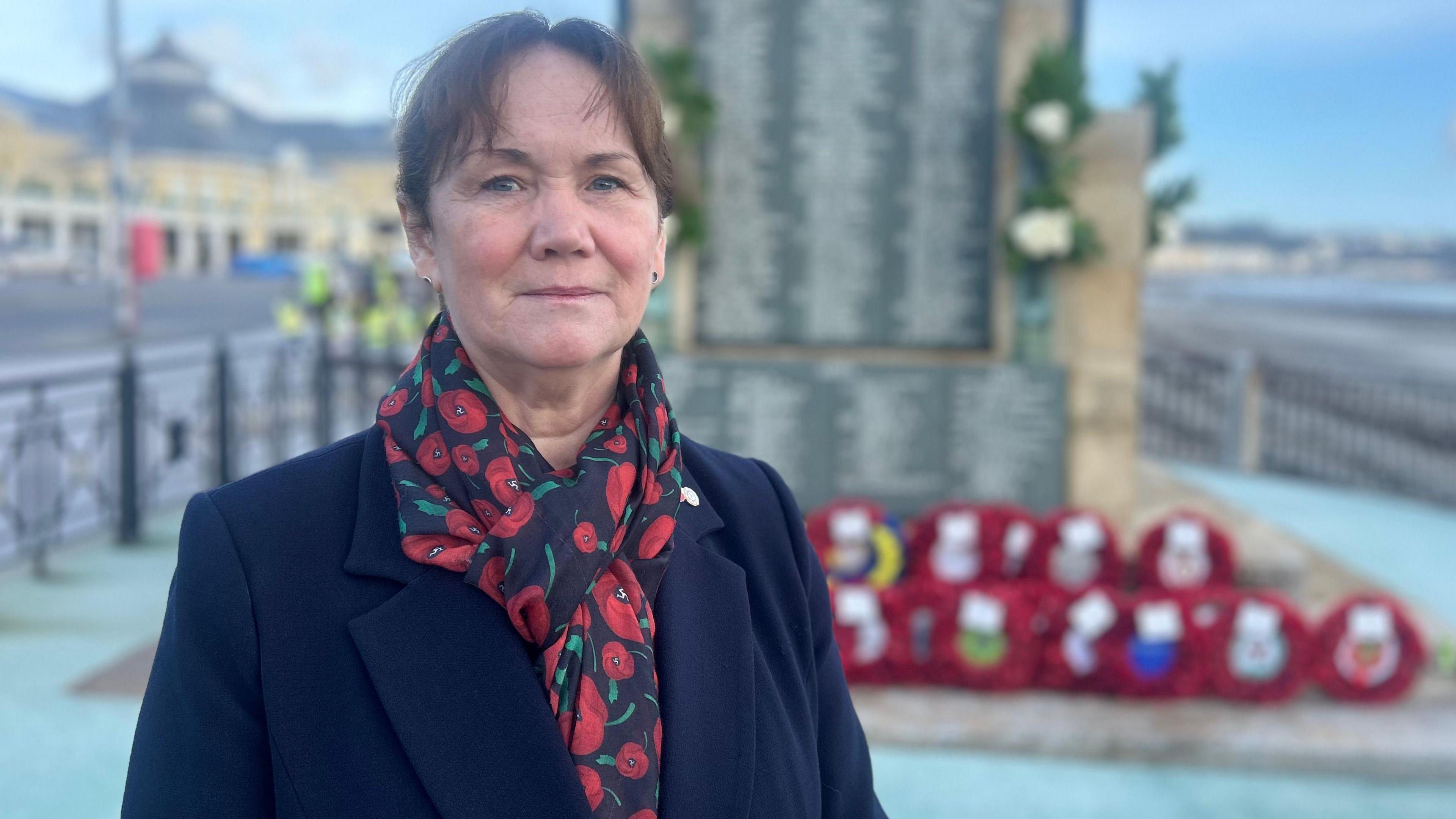
Member of the Legislative Council Diane Kelsey served in the RAF for 23 years
Douglas’s cenotaph was designed by Ewart Crellin and unveiled in a civic ceremony in 1924.
Mrs Kelsey explained that in the early years following World War One, memorials were commissioned by local communities across the British Isles, leading to a variety ranging from “very simple to very ornate”.
The island was "really lucky" as there were "some very dedicated people who have looked into some of the history of some of the names, and some of the people who died in war, to give you a bit of the colour of those people", she added.
Why not follow BBC Isle of Man on Facebook, external, and X, external? You can also send story ideas to IsleofMan@bbc.co.uk
Related topics
More like this story
- Published10 November 2024
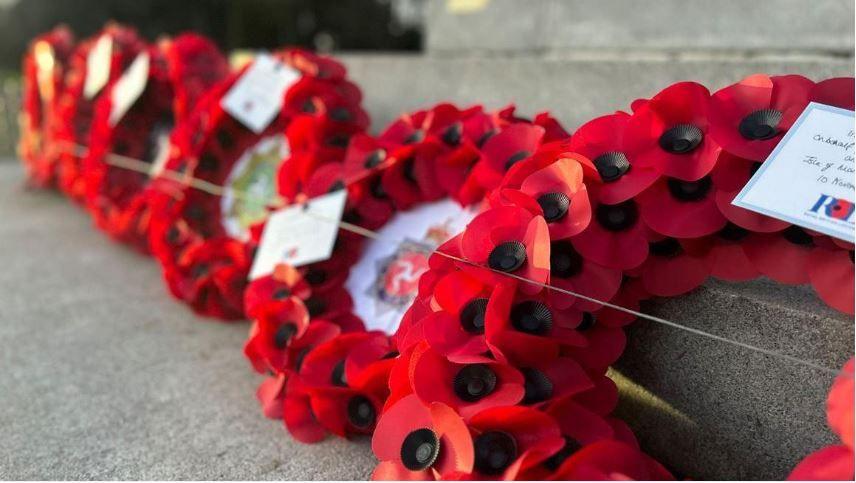
- Published12 September 2024
